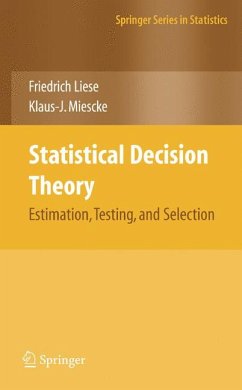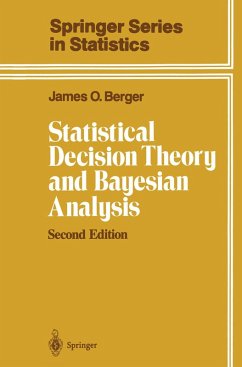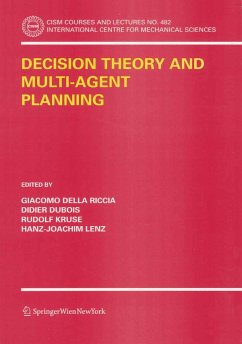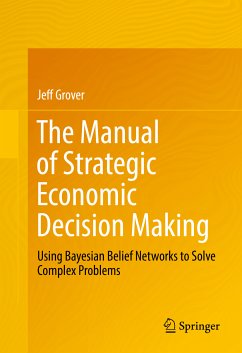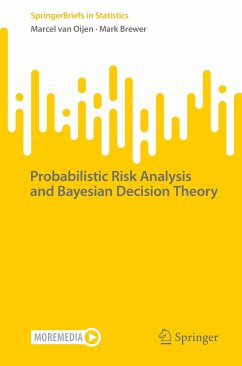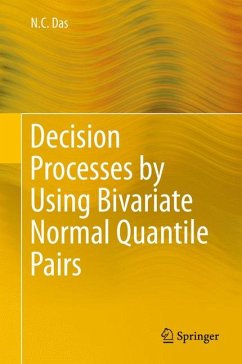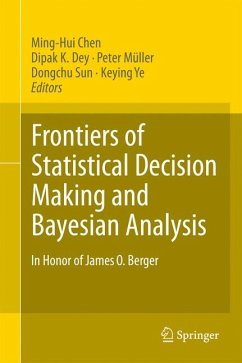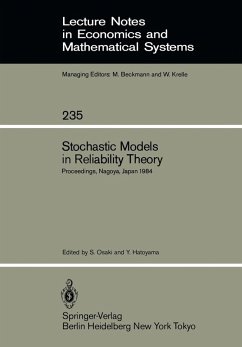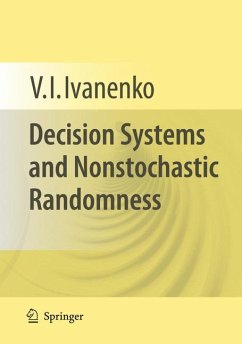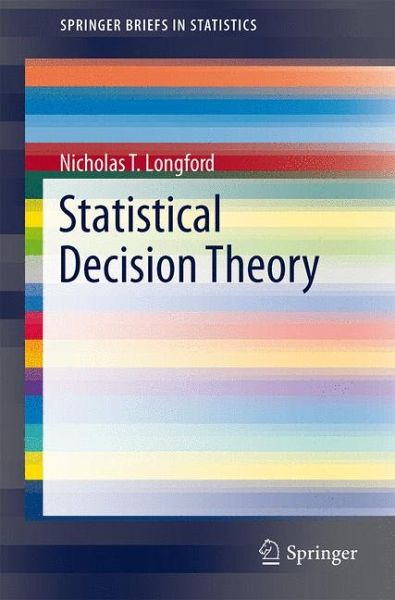
Statistical Decision Theory (eBook, PDF)
Versandkostenfrei!
Sofort per Download lieferbar
40,95 €
inkl. MwSt.
Weitere Ausgaben:

PAYBACK Punkte
20 °P sammeln!
This monograph presents a radical rethinking of how elementary inferences should be made in statistics, implementing a comprehensive alternative to hypothesis testing in which the control of the probabilities of the errors is replaced by selecting the course of action (one of the available options) associated with the smallest expected loss.Its strength is that the inferences are responsive to the elicited or declared consequences of the erroneous decisions, and so they can be closely tailored to the client's perspective, priorities, value judgments and other prior information, together with t...
This monograph presents a radical rethinking of how elementary inferences should be made in statistics, implementing a comprehensive alternative to hypothesis testing in which the control of the probabilities of the errors is replaced by selecting the course of action (one of the available options) associated with the smallest expected loss.
Its strength is that the inferences are responsive to the elicited or declared consequences of the erroneous decisions, and so they can be closely tailored to the client's perspective, priorities, value judgments and other prior information, together with the uncertainty about them.
Its strength is that the inferences are responsive to the elicited or declared consequences of the erroneous decisions, and so they can be closely tailored to the client's perspective, priorities, value judgments and other prior information, together with the uncertainty about them.
Dieser Download kann aus rechtlichen Gründen nur mit Rechnungsadresse in A, B, BG, CY, CZ, D, DK, EW, E, FIN, F, GR, HR, H, IRL, I, LT, L, LR, M, NL, PL, P, R, S, SLO, SK ausgeliefert werden.




